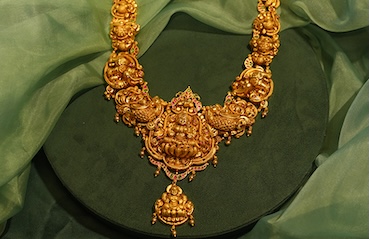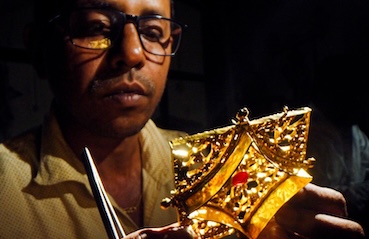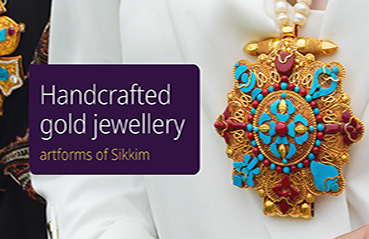Published: 17 Aug 2018
Know the Story Behind Why Thrissur is called the - Gold Capital of India

Did you know that about 30% of all the gold jewellery sold in India is crafted in Thrissur? Also, nearly all the large Kerala jewellers who have no manufacturing units of their own, outsource the job to about 3,000 small outfits that employ about 40,000 artisans located around Thrissur.
Needless to say, the gold market of Thrissur is a major source of revenue for the state of Kerala. It is no surprise then that the city headquarters some of the largest gold retailers of India, making it the epicentre of gold trade and industry in the country. Gold has been instrumental in turning local entrepreneurs into some of the wealthiest people in India.
The entrepreneurial spirit
The entrepreneurial attitude in the minds of the people of Thrissur is said to have been seeded by King Sakthan Thampuran who changed his capital to Thrissur in the 18th century. He invited several Syrian Christian families that were renowned for their business acumen to set up businesses in Thrissur. Teak, furniture, and gold were among the most common businesses set up. While other industries have expanded and advanced too, gold dominates them all. Till date, many gold jewellers in the city trace their roots to families that arrived on Sakthan Thampuran’s invitation. Evidently, some of India’s largest jewellery companies are headquartered in Thrissur.
Related:How gold rushes shape history?
The silk route
One more factor that contributed to the rise of Thrissur as the gold capital of India is the city’s contribution in serving as a prominent stopover in the silk route for international trade. Roman and Arab traders used to stop at the port of Kodungallur near Thrissur during their voyage. Even though the trade eventually came to an end, it left behind a reserve of gold and artisanal expertise in gold jewellery. Today, Kodungallur itself has more than 100 jewellery shops within a 1 km radius.
Related:The significance of gold in south India
The push from the system
Yet another push came when policy changes made by the Indian government in 1990, which led to a rapid rise in the number of jewellery stores in the city.
- Enforcement of the Gold Control Act (restricting the sale and holding of gold in personal possession)
- The grant of permission to NRIs to bring in up to 5 kg (subsequently raised to 10 kg) of gold to the country
- Introduction of provisions in the Foreign Exchange Regulation Act, 1973.
While earlier only goldsmiths and traders dominated the industry, many families started opening gold jewellery business after these policy changes.
The picture today
One of the busiest localities of Thrissur, the High Road, features tiny local shops selling gold ornaments on either side of the street. This street is extremely popular among locals and tourists looking for gold jewellery at the best bargain. Be it the highways, buildings, public transport, or flyovers, the entire city is filled with hoardings, banners, posters, flexes, and painted ads of current or upcoming gold jewellery stores in the city.
While Thrissur may appear to be just like any other town in Kerala, its affinity towards gold is what sets it apart. It is therefore rightfully called ‘The Gold Capital of India’ as it is one of the leading retail gold hubs of the country.











